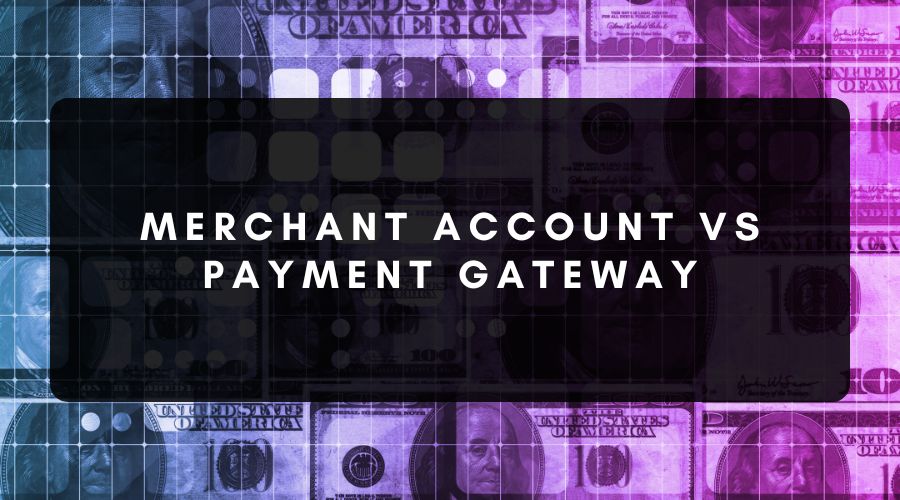
Merchant Account vs Payment Gateway
The terms “merchant account” and “payment gateway” are often conflated, but they’re not the same thing. If you run a business and want to accept credit card payments, you need both of these important items—each of which serves a distinct purpose.
Merchant Account vs Payment Gateway—An Overview
Merchant Accounts: A merchant account is the account where your incoming funds are collected and stored. It’s associated with information about your business, and it’s only accessible to you and anyone authorised to manage payment information within your organisation. After your earnings (minus processing fees) are in your merchant account, they pass from your merchant account into your bank account. Please note that your merchant account and business bank account are separate and serve different purposes.
Payment Gateways: A payment gateway is the link between your customers’ banks and your merchant account. Whenever someone uses a credit or debit card to pay you for goods or services, the money is transferred from the customer’s bank account to your merchant account via the payment gateway. Whereas the merchant account is unique to you, the payment gateway is shared between several businesses and all of their respective customers. A secure gateway will ensure that incoming funds are always transmitted to the appropriate merchant account without third-party interception.
Types of Merchant Accounts and Payment Gateways
Merchant Accounts: There are two common types of merchant account providers for online payments: payment service providers (PSPs) and independent sales organisations (ISOs) also known as merchant service providers (MSPs). Small and medium-sized businesses are usually best served with PSP accounts, as these are easy to set up and relatively low-maintenance. They also tend to be more affordable for businesses with less demanding needs. An ISO account is ideal for large businesses, as it’s more robust and capable of handling high volumes. Having your own dedicated merchant account also tends to result in lower transaction fees, which offsets the higher upfront cost.
Payment Gateways: When deciding on a payment gateway, you’ll need to choose between the classic gateway and the modern gateway. A classic gateway requires you to configure your own merchant account and bank account; a modern gateway, like PayPal or Stripe, is all-inclusive and takes just minutes to set up—usually with no merchant account required. A classic gateway is usually the best bet for serious businesses. Although it’s a bit more complicated to set up and manage, it lends legitimacy to your business and contributes to a better customer experience. Customers usually don’t have to leave the website, and transactions are completed in seconds. Classic gateways are also more affordable.
What to Look for in a Merchant Account vs Payment Gateway
Just as merchant accounts and payment gateways serve different purposes, they also differ in their essential features.
Merchant Accounts: When shopping for a merchant account, you want to go with a provider that lets you settle in your preferred currency. You should have on-demand access to your account information, and you should always watch out for hidden fees. If your business manages high-volume transactions, make sure that there are no caps on monthly processing volume.
Payment Gateways: When choosing a payment gateway, you want an option that’s secure above all else. Your gateway should be fully PCI compliant (preferably Level 1 compliant), and should be protected by a quality SSL certification. We recommend the SHA-256 SSL encryption standard. In addition, you want a payment gateway that will let you accept payments in as many currencies as possible, particularly if your customer base is international. Fraud detection tools are also important.
How to Find the Right Merchant Account & Payment Gateway
Compatibility is the most important feature to keep in mind when choosing a merchant account and payment gateway to process payments. Many payment gateways limit the banks, payment methods, and merchant accounts they’ll work with. Some financial providers restrict entire industries.
Consider working with a reputable payment processor that offers both merchant services and payment gateway services. When you bundle your payment processing services, you typically benefit from lower-cost hosting, streamlined service, and seamless compatibility. The setup process is much easier, and you never have to worry about trying to get your payment gateway and merchant account on the same page.
Make sure to choose a merchant account provider that’s affordable, secure, and reputable. The payment process will run much more smoothly, and your customers will thank you.

